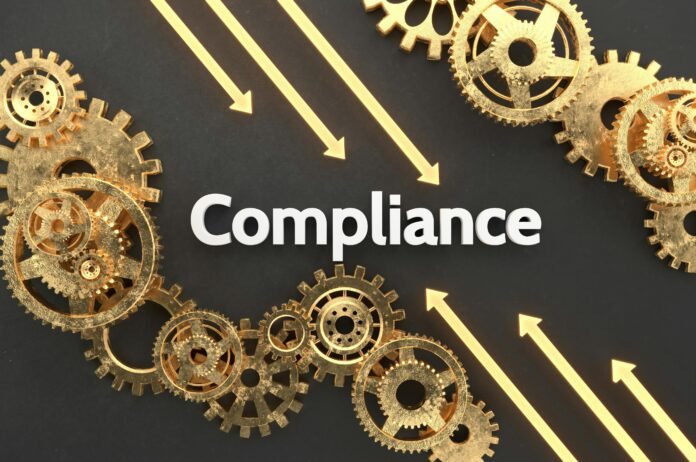Navigating Global Cybersecurity Compliance: Lessons for U.S. Companies
In an increasingly interconnected world, global cybersecurity compliance and regulation requirements are in a state of constant flux. For U.S. companies looking to expand their operations internationally, this shifting landscape presents both challenges and opportunities. With stringent laws like the General Data Protection Regulation (GDPR) in the European Union (EU) and the United Kingdom (U.K.), American businesses often find themselves at a disadvantage when it comes to data privacy regulation and compliance. Understanding these regional differences is crucial for U.S. companies aiming to thrive in the global marketplace. Here’s what they can learn from their counterparts across the Atlantic.
Navigating the Contrasts: Privacy Regulations Across Different Jurisdictions
The EU and U.K. have long been at the forefront of data privacy regulations, often leading the way with comprehensive frameworks that prioritize consumer protection. Following Brexit, the U.K. established its own version of GDPR, known as the UK GDPR, alongside the Data Protection Act 2018. These regulations maintain standards that closely mirror those of the EU’s GDPR, ensuring a high level of data protection for individuals.
In contrast, the U.S. regulatory landscape is fragmented, with a patchwork of federal and state laws governing data privacy. The California Consumer Privacy Act (CCPA) was the first major data privacy law in the U.S., and it has since been amended and expanded by the California Privacy Rights Act of 2020 (CPRA). While the CCPA is the most commonly applied privacy regulation in the U.S., many companies—regardless of their location—claim compliance with its guidelines, anticipating the emergence of additional regulations that often draw inspiration from GDPR.
This divergence in regulatory approaches highlights a fundamental difference: Europe tends to adopt a more prescriptive stance on regulation, while the U.S. leans toward market-driven solutions. For instance, when the EU mandated that Apple switch from Lightning adapters to USB-C for all devices, the U.S. did not pursue similar regulations. Instead, Apple opted for global standardization on USB-C, demonstrating how regulatory environments can influence corporate decisions.
Overcoming Challenges Faced by U.S. Enterprises in Global Compliance
The regulatory fragmentation in the U.S. poses significant challenges for companies seeking to implement a cohesive cybersecurity and privacy strategy. Overlapping compliance requirements across various states and countries can create complexity and inconsistency in security measures, hindering effective data management.
Fortunately, a growing number of companies are emerging to address these challenges. These organizations specialize in enhancing data privacy, protection, and security, offering solutions that automate tedious compliance processes. By leveraging technology, they help businesses navigate the complexities of regulations like GDPR and CCPA, ensuring that compliance becomes a streamlined part of their operations.
While adhering to these regulations may seem burdensome, it is essential for establishing robust security and privacy controls. U.S. companies can learn valuable lessons from the U.K. in this regard. Implementing strong data management practices—regardless of legal mandates—can create a solid foundation for managing both internal data and the data of customers and partners.
Look for Strong Security and Privacy Partners
To bolster their cybersecurity and privacy efforts, U.S. companies should consider partnering with organizations that specialize in cybersecurity as a service. These partners can provide expertise in implementing best practices, scaling security and compliance offerings, and ensuring adherence to regulations both domestically and internationally.
By collaborating with cybersecurity firms, businesses can prepare for audits, integrate technologies tailored to their unique security requirements, and ultimately enhance their overall compliance posture. Such partnerships can be instrumental in navigating the complexities of global cybersecurity compliance.
Using AI to Streamline Cross-Border Compliance
Artificial intelligence (AI) is poised to play a transformative role in privacy and security compliance. Generative AI, in particular, can assist organizations in detecting and remediating security and privacy issues as they arise. By enforcing data security controls and ensuring consistency across different regulatory frameworks, AI can help streamline compliance efforts.
Many data privacy frameworks, including GDPR and CCPA, share overlapping requirements. AI tools can identify these similarities, allowing companies to address common compliance needs efficiently. For instance, most frameworks mandate securing data both at rest and in transit. By implementing AI solutions, organizations can address these requirements once and apply the solutions broadly, saving time and resources.
Conclusion
As U.S. companies look to expand their operations globally, understanding the nuances of cybersecurity compliance and regulation is paramount. By learning from the EU and U.K. approaches to data privacy, American businesses can navigate the complexities of international expansion more effectively. Embracing strong data management practices, forging partnerships with cybersecurity experts, and leveraging AI technology will not only enhance compliance efforts but also strengthen overall security posture. In a world where data privacy is increasingly prioritized, these lessons are invaluable for any organization aiming to succeed on the global stage.

